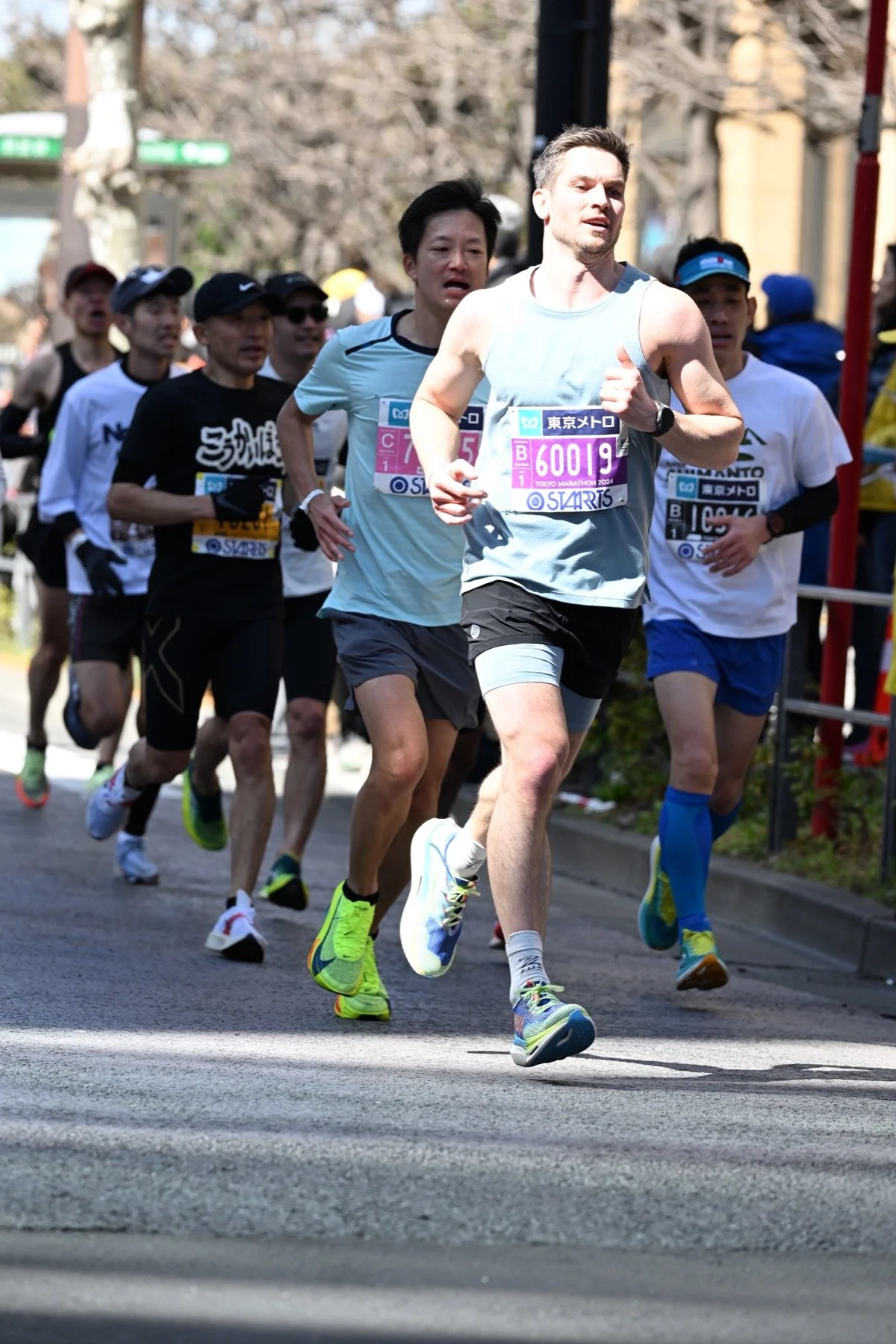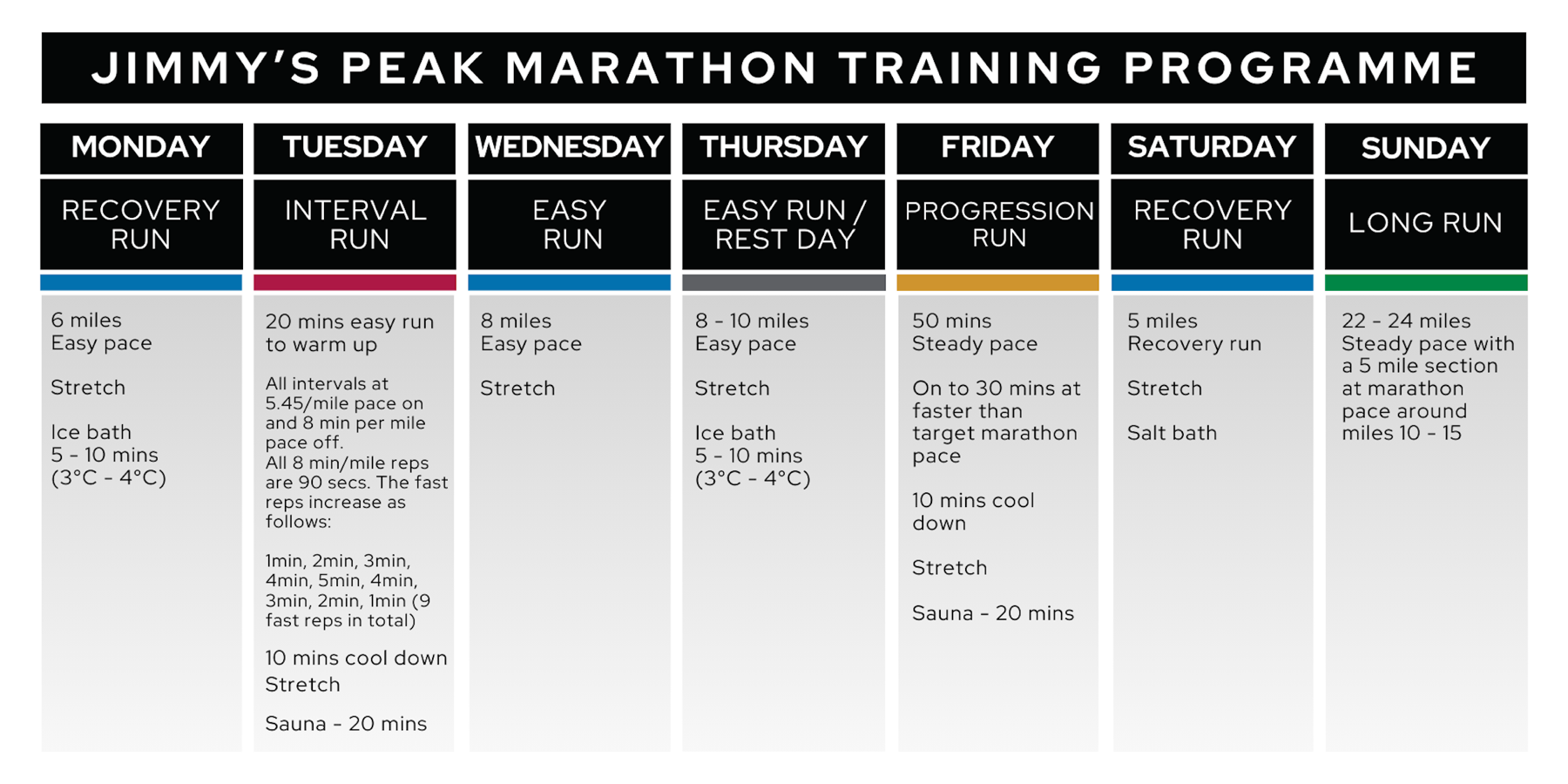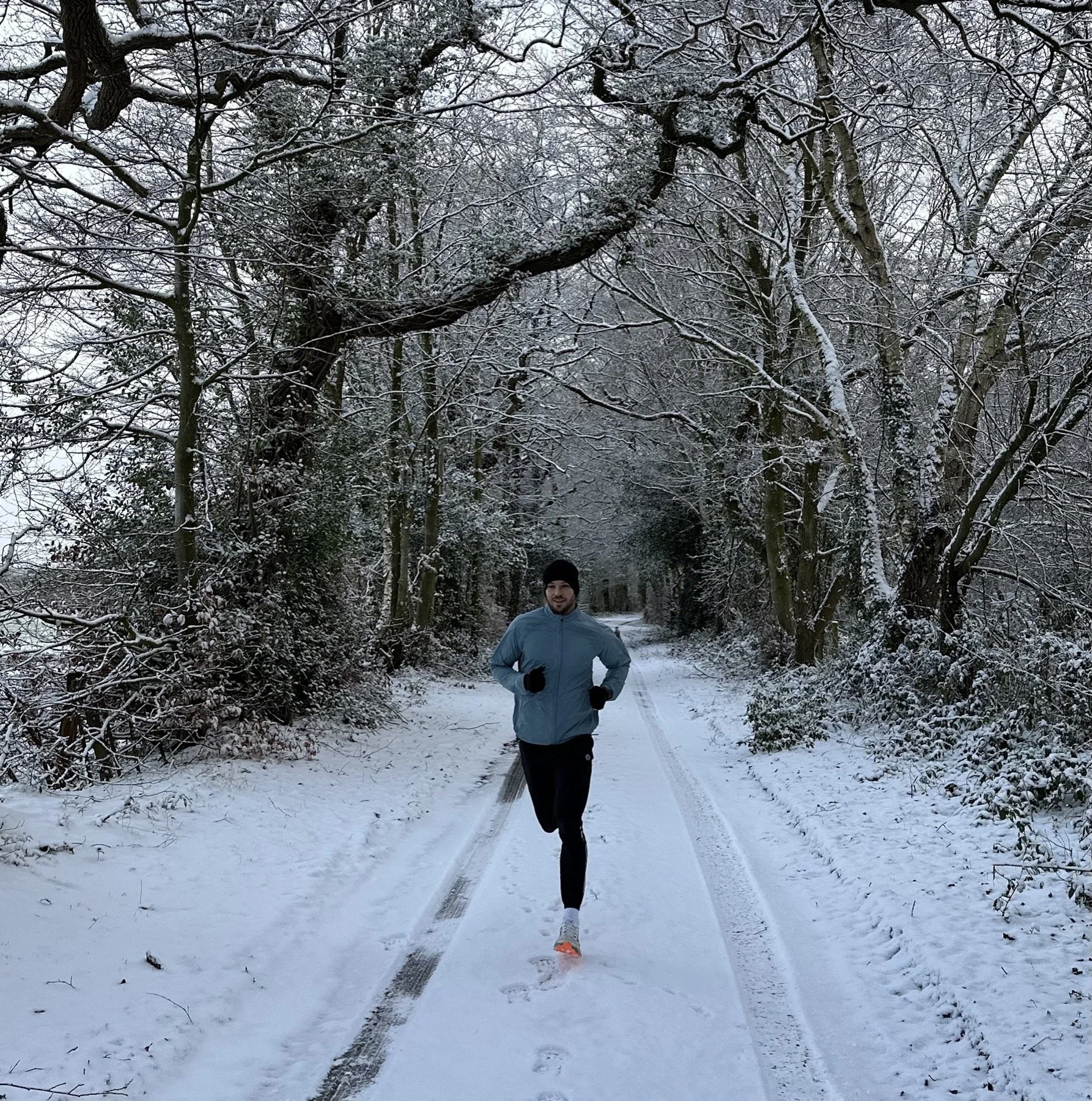Find Your Fit - Marathon Running
Health and fitness expert, Clare Stobart y
As a dedicated runner myself and self-proclaimed “decathlete” in my twenties, I was deeply immersed in the world of competitive running and the sheer enjoyment of hitting the pavement. Setting goals, embracing challenges, and relentlessly pursuing personal bests became my mantra. The allure of running’s addictive nature was undeniable.
The benefits of running extend far beyond just physical. It’s a powerful stress reliever, clears the mind, and connects you with nature. Plus it enhances cardiovascular fitness, ensuring that every stride strengthens not just the body but also the spirit. The most exhilarating aspect of running is the rush of adrenaline that you feel through your body after conquering a tough run. It’s a feeling of triumph, a tangible manifestation of pushing beyond limits.
My good friend Jimmy Irlam is among the fittest individuals I’ve encountered in Cheshire, having maintained an athlete’s lifestyle throughout his life. He pursued a career as a professional rugby player at a young age, with exceptional talent and determination. However, he faced a series of setbacks including 3 shoulder operations by the age of 20. Following his rugby career, Jimmy pursued his passion by establishing and managing his own gyms, where he personally trained clients. I’ve had the opportunity to train with Jimmy on numerous occasions, and his relentless dedication consistently pushed me beyond my perceived limits and comfort zones.
Jimmy maintained a rigorous training schedule, hitting the gym every day, focusing primarily on strength training. Over time, he transitioned into focusing mainly on running, demonstrating remarkable prowess in the sport. Having only previously taken part in a handful of local 10km races, Jimmy set his sights on a formidable challenge: running the Six World Marathon Majors. These marathons are in Tokyo, Boston, London, Berlin, Chicago and New York, all to be raced in under 3 hours. Remarkably, he has already conquered 4 marathons, coming 500th out of 50,000 in New York with a time of just 2hrs 49mins! The Berlin and Boston Marathons are all that is remaining to finish his ambitious goal.
With a resting heart rate of 36-38 bpm, it’s easy to see how much hard work goes into this running machine!
What motivated you to take on the enormous challenge of completing the six major marathons in the world?
Due to previous injuries and surgeries, I have very little cartilage left in one of my shoulders which meant weight training which I’ve always loved became a massive struggle. During the Covid restrictions, I found running filled the void left by not being able to hit the gym like I used to. My first race was the Colshaw Hall 10km which gave me the target I needed to motivate me. As with anything, once I had completely that, I wanted a bigger goal.
What has been your most significant challenge? Have you faced any obstacles?
Every Marathon has come with its own obstacles. Soon after setting my marathon goal, I had a heart complication and unfortunately, my Cardiologist removed me from the London Marathon, which was due to be my first. Luckily with careful monitoring I reshuffled the order of my marathon plans and managed to take part in Chicago the following year to get the ball rolling. Since then I’ve had all kinds of injuries that have nearly derailed me; from Achilles problems and more Covid, to damaging the plantar plate ligament in my foot 3 weeks before my latest run in Tokyo. This meant I couldn’t run at all leading up to it and haven’t been able to for 4 weeks since, so I’m still not sure how I got around and still under 3 hours to keep the overall goal alive. This is why marathon running is such a great challenge as it’s hard enough simply training for one, so when you throw other aspects in the mix, the achievement feels even better.
Nutrition plays a crucial role in all athlete’s performance. Can you share any insights into your diet and any supplements that you take to facilitate such a full on training schedule?
My diet is clean all week, no cheat days although I enjoy a Sunday roast after a long run! I don’t eat processed food or drink alcohol. A typical day for me usually consists of:
Breakfast - Coffee with organic whole milk followed by eggs on sourdough or oats.
Snack - Blueberries and almonds or Brazil nuts.
Lunch - Sardines (although my family hate the smell!) sweet potato and tenderstem broccoli.
Snack - Puffed oats and whole milk.
Dinner - Chicken or lamb, rice and mixed vegetables.
After a tough run, I will take a post workout shake containing protein and carbs.
I’ll only drink coffee early on and then plenty of water. I also have the odd kefir to help my gut.
Daily supplements - Athletic Greens, vitamins B12, C and D, omega 3, iron and joint complex.
Evening supplement - zinc and magnesium to help me sleep and give my body the nutrients it needs to rest and reset for training the following day.
What advice would you offer to fellow runners aiming to tackle ambitious challenges like yours?
You’ve got to prepare in every way you can. Everything such as training, stretching, recovery, and diet all has to be working towards the goal. Discipline is also a major factor, not giving in on occasions when you get offered a late night out or alcohol goes a long way and for me is well worth the sacrifice. In my experience some people don’t run far enough in training, when you start out and aren’t running as fast, a 20+ mile run isn’t easy and takes a lot of time but give yourself enough of a build-up before a race to make sure the distance is in your legs and you’re confident come marathon day. Those last few miles are tough as it is so if you’ve not got near on a couple of occasions in training it won’t be enjoyable! I aim for five 20-24 mile runs in training but a couple will do fine if you are simply training to complete the distance. On the day, stay relaxed, stress-free knowing you’ve put in all the work. Run at your target pace and don’t be tempted to get caught up in the excitement and run too quickly. Save that burst of energy for the last 3 miles if it’s still there! I encourage anyone to have a go at completing a marathon as the sense of achievement is amazing and its something so many people don’t think they could do but its incredible how your body adapts if you start slowly from any point and build up over time.
What is your pre-race routine? How do you prepare mentally and physically for the marathon ahead?
I’m totally obsessed with getting enough sleep to the point it used to stop me falling asleep! Now I’ve learned to relax and always target 8 hours a night. I wear a Coros Pace 3 to help me track everything from sessions to sleep. I also make sure I stretch every day, straight after my run doing 2 sets of 45 second holds for my back, hips, quads, hamstrings and calves. It takes around 20 minutes but is needed to offset the tightening caused by training, especially as you get older! I use the sauna 3 times a week for 20 minutes, but not before a tough session to avoid dehydration. I also take 10 minute ice baths twice a week and wear compression boots when anything is feeling tight, particularly my calves. Jonny Mellor, a 2:09 marathon runner has been helping me with fine tuning my training, that experience is such a benefit! I believe he will definitely help improve my PB.
Could you elaborate on your pre-marathon nutrition strategy?
Two days before the race, I drop fibre out of my diet and eat plain white rice, oats and sourdough toast to ensure I don’t risk getting an upset stomach. I also exclude veg, nuts and fruits altogether, but continue to eat simple protein. I slowly introduce Maurten carb and electrolyte drinks to make sure I’m fully energised.
Post-marathon, what steps do you take to aid your recovery and ensure your body recuperates effectively?
I start with a slow run to get the blood flowing and kickstart the recovery process. Followed by 4 days rest with steady walking. I don’t go back into anything other than the odd easy run until at least 3 weeks after. I find ice baths and saunas also help if introduced a few days after the race.
Once you’ve completed the six world marathon majors, how do you plan to celebrate this remarkable achievement?
By setting another challenge! Maybe an ultra marathon but another goal for me is a sub 2-hour 30-minute marathon so I’ll likely aim for that.
You’ve ventured into creating your own running brand, Zur Running. Could you tell us more about it?
The biggest annoyance I found when running my first marathon was with my clothing. I was uncomfortable, my vest was bouncing around, my gels were falling out and even my shorts were continually riding down! I began to design running gear around my experience and I’m always tweaking it to look for improvements. Zur Running was set up as a passion project rather than a money spinner and I love developing it as I train.
Hungry for more?
Read up on the latest news, delicious eats, travel treats and seasonal style trends in FEATURES, or browse a curated selection of our FEATURED PRODUCTS, meander through our guide to the finest things to do in Cheshire and beyond in WHATS ON or partake in our COMPETITIONS.
About The CHESHIRE Magazine
We are the definitive guide to luxury lifestyle in the North West. Latest news, delicious eats, travel treats and seasonal style trends. The Cheshire Magazine is the largest luxury lifestyle title for the North West of England, dropping directly through the letterboxes of VIP subscribers from the Wirral to Greater Manchester plus all the villages and towns in between and digitally available as a subscription in print and digital on issuu.com worldwide. We specialise in connecting luxury brands to likeminded consumers.
If you are interested on how you can partner with The CHESHIRE Magazine, read more about us. Or get in touch to find out more about marketing, featuring or partnering with the Cheshire Magazine in print or online.














